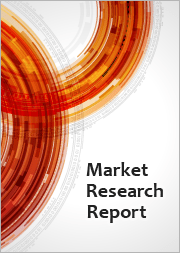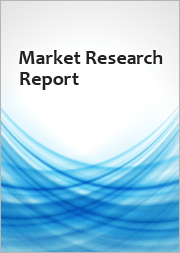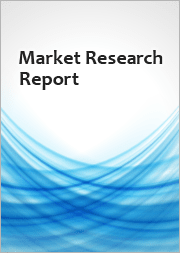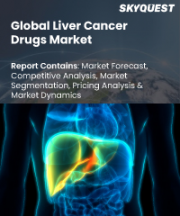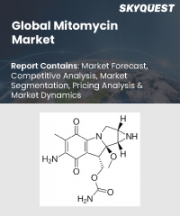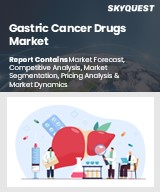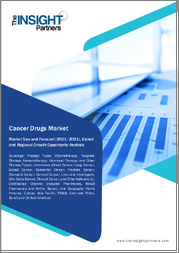
|
시장보고서
상품코드
1804880
암 치료제 시장 규모와 예측(2021-2032년) : 세계 및 지역 점유율, 동향, 성장 기회 - 분석 범위(치료 유형별, 적응증별, 유통 채널별, 지역별)Cancer Drugs Market Size and Forecast 2021 - 2031, Global and Regional Share, Trend, and Growth Opportunity Analysis Report Coverage: By Therapy Type, By Indications, By Distribution Channel, and Geography |
||||||
암 치료제 시장은 2024년 2,259억 6,000만 달러에서 2031년에는 5,161억 5,000만 달러에 이를 것으로 예상됩니다. 2025-2031년 CAGR은 12.6%를 나타낼 전망입니다. 시장 성장을 가속하는 주요 요인으로는 유방암이나 폐암 부담이 증가하고 있는 것, 종양학 연구에 대한 투자가 급증하고 있는 것 등을 들 수 있으며, 암 치료제의 채용을 뒷받침하고 있습니다. 또한, 맞춤형 의료에 대한 선호도가 예측 기간 동안 시장을 밀어 올릴 가능성이 높습니다. 그러나 치료비의 높이는 시장 저해 요인 중 하나입니다.
폐암의 부담 증가는 특히 2023년 암 치료제 시장의 중요한 촉진요인이었습니다. 폐암은 여전히 세계적으로 가장 이환율이 높고 사망률이 높은 암 중 하나이며 암에 의한 사망자 수의 25%를 차지하고 있습니다. 미국암협회에 따르면 2023년에는 미국에서 추정 23만 8,000명이 새롭게 폐암으로 진단되었고, 12만 7,000명이 폐암으로 사망했습니다. 사례의 절반 가까이는 원격(전이성) 단계에서 진단되며, 5년 생존율은 29%로 감소합니다. 이 엄격한 통계는 효과적인 치료 옵션의 임박한 필요성을 강조하고 혁신적인 치료제에 대한 수요를 부추기고 있습니다. 흡연은 여전히 이환 환자의 약 85%를 차지하는 주요 위험인자이지만, 특히 WHO의 대기질 기준을 밑도는 지역에서는 대기오염이 주된 원인이 되어 비흡연자의 폐암 이환율이 상승하고 있습니다. 비흡연자에서의 이환율 증가는 선암 및 담배에 대한 노출과 직접적인 관련이 없는 다른 아형을 표적으로 하는 보다 광범위하게 적용가능한 치료에 대한 미충족 요구를 두드러지게 합니다.
조기 발견과 정밀의료의 과제는 이러한 증가하는 과제를 다루는 데 매우 중요합니다. 표적 치료, 면역 요법 및 병용 요법의 개발은 생존과 삶의 질을 향상시킵니다. 2023년에는 EGFR 돌연변이 NSCLC에 대한 태블리소(오시멜티닙)와 같은 신약의 승인과 신규 면역관문억제제의 임상시험이 진행되었으며, 계속해서 치료 상황이 재구성되었습니다. 면역요법은 유망한 결과를 보여주며, 키트루다(펨브롤리주맙)와 옵지보(니볼루맙) 등의 약물은 암과 싸우기 위해 신체의 면역계를 이용함으로써 환자의 결과를 현저하게 개선하고 있습니다. 따라서 유방암의 이환율 증가가 세계의 암 치료제 시장 성장을 견인하고 있습니다. 게다가 국민의 암에 대한 의식의 고조는 이 시장의 개척에 플러스에 기여할 것으로 예측됩니다.
경쟁업체 비교 분석에서는 제품 포트폴리오(제품 만족도, 제품 특징, 이용가능성), 최근 시장 동향(합병·인수, 신제품 발매·강화, 투자·자금 조달, 수상, 합의, 제휴·협력, 인지, 확대), 경쟁 구도의 보다 좋은 의사결정과 이해를 돕는 지역적 존재에 기초하여 암 치료제 시장을 평가했습니다. 본 보고서에서는 세계의 암 치료제 시장에서 주요 벤더의 최근 중요한 동향과 혁신에 대해 깊이 조사했습니다. 주요 시장 기업은 브리스톨 마이어스 스퀴브, 아비, 존슨 엔드 존슨, F. 호프만 라 로슈, 화이자, 아스트라 제네카, 머크 KGaA, 노바티스, 아스테라스 제약 회사, 엘리 릴리 앤 컴퍼니입니다.
암 치료제 시장은 치료법의 유형에 따라 화학요법, 표적요법, 방사선요법, 호르몬요법, 기타 치료법으로 구분됩니다. 2024년에는 표적 치료 분야가 암 치료제 시장에서 가장 큰 점유율을 차지했습니다.
적응증별로는 혈액암, 폐암, 유방암, 대장암, 전립선암, 위암, 자궁경부암, 간·간내담관암, 갑상선암, 기타 적응증으로 구분됩니다. 유방암 분야는 2024년 암 치료제 시장에서 가장 큰 점유율을 차지했으며, 2025년부터 2031년까지 가장 높은 CAGR을 나타낼 것으로 예측됩니다. 유방암은 가장 이환율이 높은 암 중 하나이며, 세계 전체에서 매년 230만명이 새롭게 암으로 진단되는 것으로 추정되고 있습니다. 유방암은 여성의 주요 암이며 세계 암 관련 사망의 주요 원인입니다. 그러나 유방암의 연구와 치료에 있어서 현저한 진보에 의해 특히 조기 진단에 있어서의 생존율은 극적으로 개선했습니다. 표적요법, 면역요법, 맞춤형 치료요법의 개발로 유방암의 치료상황은 계속 변화하고 있습니다.
유통 경로의 관점에서 암 치료제 시장은 병원 약국, 소매 약국, 온라인 스토어로 구분됩니다. 병원 약국 부문은 2024년 암 치료제 시장에서 가장 큰 점유율을 차지했으며 2025년부터 2031년까지 가장 높은 CAGR을 나타낼 것으로 예측됩니다.
암 치료제 시장에서 사업을 전개하는 기업은 유기적이고 무기적인 다양한 전략을 채택하고 있습니다. 유기적 전략에는 주로 제품 시장 및 제품 승인이 포함됩니다. 시장에서 볼 수 있는 무기적 성장 전략에는 인수, 제휴, 파트너십 등이 있습니다. 이러한 성장 전략을 통해 시장 기업은 사업을 확장하고 지리적 존재를 높이고 전체 시장 성장에 기여할 수 있습니다. 또한 인수 및 제휴는 고객 기반 강화 및 제품 포트폴리오 확대에 도움이 됩니다. 암 치료제 시장에서 주요 기업의 중요한 발전의 일부는 다음과 같습니다.
2024년 미국과 캐나다 이외에서는 MSD로 알려진 머크와 비상장 기업인 LaNova Medicines Ltd.(LaNova)가 합병했습니다.(LaNova)는 머크가 LaNova의 신규 PD-1/VEGF 이중 특이성 항체 LM-299의 개발, 제조, 상업화에 관한 독점적 세계 라이선스를 체결했다고 발표했습니다.
2024년, 중국 국가약품감독관리국이 진행 방광암의 퍼스트라인 치료에 있어서의 KEYTRUDA(펨브롤리주맙)와 병용하는 enfortumab vedotin에 관한 아스텔라스 제약과 화이자사의 생물제제 추가 승인 신청을 수리했습니다.
2023년 화이자는 혁신적인 암 치료제를 발견, 개발, 상업화하는 세계 바이오테크놀러지 기업인 시겐사의 인수가 성공적으로 완료되었다고 발표했습니다. 화이자는 시겐이 발행한 모든 보통주식을 1주당 229달러의 미국 현금으로 취득하여 총 기업이치 약 430억 달러의 인수를 완료했습니다.
목차
제1장 서론
제2장 주요 요약
- 주요 인사이트
- 시장의 매력
제3장 분석 방법
- 2차 조사
- 1차 조사
- 가설의 책정
- 거시경제 요인분석
- 기초 수치의 동향
- 데이터의 삼각측량
- 국가 레벨 데이터
- 가정과 한계
제4장 암 치료제 시장의 정세
- PEST 분석
- 생태계 분석
- 밸류체인의 벤더 일람
제5장 암 치료제 시장 : 주요 시장 역학
- 암 치료제 시장 : 주요 시장 역학
- 시장 성장 촉진요인
- 유방암·폐암의 부담증
- 종양 연구에 대한 투자의 급증
- 시장 성장 억제요인
- 치료비의 상승
- 시장 기회
- 정부 및 민간 단체로부터의 지원 증가
- 향후의 동향
- 맞춤형 의료에의 기호
- 성장 촉진요인과 억제요인의 영향
제6장 암 치료제 시장 : 세계 시장 분석
- 암 치료제 시장의 수익(2021-2031년)
- 암 치료제 시장 예측·분석
제7장 암 치료제 시장 분석 : 치료 유형별
- 화학 치료
- 표적 치료
- 면역 치료
- 호르몬 치료
- 기타 치료 유형
제8장 암 치료제 시장 분석 : 적응증별
- 혈액암
- 폐암
- 유방암
- 대장암
- 전립선암
- 위암
- 자궁경부암
- 간 및 간내 담관암
- 갑상선암
- 기타 적응증
제9장 암 치료제 시장 분석 : 유통 채널별
- 병원 약국
- 소매 약국
- 온라인 스토어
제10장 암 치료제 시장 : 지역별 분석
- 북미
- 미국
- 캐나다
- 멕시코
- 유럽
- 독일
- 영국
- 프랑스
- 이탈리아
- 스페인
- 기타 유럽
- 아시아태평양
- 중국
- 일본
- 인도
- 한국
- 호주
- 기타 아시아태평양
- 중동 및 아프리카
- 튀르키예
- GCC 국가
- 남아프리카
- 기타 중동 및 아프리카
- 중남미
- 브라질
- 아르헨티나
- 기타 중남미
제11장 경쟁 구도
- 히트 맵 분석 : 주요 기업별
- 기업의 포지셔닝과 집중도
제12장 업계 정세
- 시장 이니셔티브
- 파트너십과 제휴
- 기타 동향
제13장 기업 프로파일
- Bristol-Myers Squibb Co
- AbbVie Inc
- Astellas Pharma Inc
- Eli Lilly and Co
- Novartis AG
- Merck KGaA
- AstraZeneca
- Pfizer Inc
- F. Hoffmann-La Roche Ltd
- Johnson & Johnson
제14장 부록
KTH 25.09.10The cancer drugs market is projected to reach US$ 516.15 billion by 2031 from US$ 225.96 billion in 2024. The market is estimated to register a CAGR of 12.6% during 2025-2031. Major factors driving the market growth include a growing burden of breast and lung cancer, and surging investments in oncology research are propelling the adoption of cancer drugs. Further, the preference for personalized medicine will likely boost the market during the forecast period. However, the high cost of treatment is among the market deterrents.
The growing burden of lung cancer is a significant driver of the cancer drugs market, particularly in 2023. Lung cancer remains one of the most prevalent and deadly cancers globally, accounting for ~25% of all cancer deaths. According to the American Cancer Society, in 2023, an estimated 238,000 new cases of lung cancer were diagnosed in the US, and ~127,000 people died from the disease. Nearly half of the cases are diagnosed at distant (metastatic) stages, where survival drops to a 29% five-year survival, underscoring the critical demand for more effective therapeutic options. This grim statistic underscores the pressing need for effective treatment options and fuels the demand for innovative therapeutics. Although smoking remains the leading risk factor responsible for ~85% of cases, there is a rising share of lung cancer among never-smokers, driven primarily by air pollution, particularly in regions below WHO air quality standards. The increasing incidence among non-smokers accentuates the unmet need for more widely applicable treatments targeting adenocarcinoma and other subtypes not directly linked to tobacco exposure.
Advancements in early detection and precision medicine are pivotal in addressing this growing challenge. Developing targeted therapies, immunotherapies, and combination treatments improves survival rates and quality of life. In 2023, the approval of new drugs such as Tagrisso (osimertinib) for EGFR-mutant NSCLC and the ongoing clinical trials of novel immune checkpoint inhibitors continue to reshape the therapeutic landscape. Immunotherapy has shown promising results, with drugs such as Keytruda (pembrolizumab) and Opdivo (nivolumab) significantly improving patient outcomes by harnessing the body's immune system to fight cancer. Therefore, the increasing incidence of breast cancer drives the global cancer drugs market growth. Additionally, the rising awareness of cancer among the population is expected to contribute positively to the development of this market.
The comparative company analysis evaluates and categorizes the Cancer Drugs market based on product portfolio (product satisfaction, product features, and availability), recent market developments (merger & acquisition, new product launch & enhancement, investment & funding, award, agreement, collaboration, & partnership, recognition, and expansion), and geographic presence that aids better decision-making and understanding of the competitive landscape. The report profoundly explores the recent significant developments and innovations by the leading vendors in the global cancer drugs market. The key market players are Bristol-Myers Squibb Co.; AbbVie Inc.; Johnson & Johnson; F. Hoffmann-La Roche Ltd; Pfizer Inc.; AstraZeneca Plc; Merck KGaA; Novartis AG; Astellas Pharma Inc.; and Eli Lilly and Co.
Based on therapy types, the cancer drugs market is segmented into chemotherapy, targeted therapy, radiation therapy, hormone therapy, and other therapy types. The targeted therapy segment held the largest cancer drugs market share in 2024.
By indications, the market is segmented into blood cancer, lung cancer, breast cancer, colorectal cancer, prostate cancer, stomach cancer, cervical cancer, liver and intrahepatic bile ducts cancer, thyroid cancer, and other indications. The breast cancer segment held the largest share of the cancer drugs market in 2024 and is anticipated to register the highest CAGR from 2025 to 2031. Breast cancer is one of the most prevalent forms of cancer, with an estimated 2.3 million new cases diagnosed globally each year. It is the leading cancer in women and remains a prime cause of cancer-related mortality worldwide. However, significant advancements in breast cancer research and treatment have dramatically improved survival rates, particularly in early-stage diagnoses. Ongoing developments in targeted therapies, immunotherapies, and personalized treatment regimens continue to transform the therapeutic landscape for breast cancer.
In terms of distribution channel, the cancer drugs market is segmented into hospital pharmacies, retail pharmacies, and online stores. The hospital pharmacies segment held the largest share of the cancer drugs market in 2024 and is anticipated to register the highest CAGR during 2025-2031.
Companies operating in the cancer drugs market adopt various organic and inorganic strategies. The organic strategies mainly include product launches and product approvals. Inorganic growth strategies witnessed in the market are acquisitions, collaborations, and partnerships. These growth strategies allow the market players to expand their businesses, enhance their geographic presence, and contribute to the overall market growth. Furthermore, acquisitions and partnerships helped strengthen their customer base and extend their product portfolios. A few of the significant developments by key players in the cancer drugs market are listed below.
In 2024, Merck, known as MSD outside of the United States and Canada, and LaNova Medicines Ltd. (LaNova), a privately held clinical-stage biotechnology company, announced that Merck had entered into an exclusive global license to develop, manufacture, and commercialize LM-299, a novel investigational PD-1/VEGF bispecific antibody from LaNova.
In 2024, China's National Medical Products Administration accepted Astellas and Pfizer's Supplemental Biologics License Application for enfortumab vedotin with KEYTRUDA (pembrolizumab) for First-Line Treatment of Advanced Bladder Cancer.
In 2023, Pfizer Inc. announced the successful completion of its acquisition of Seagen Inc., a global biotechnology company that discovers, develops, and commercializes transformative cancer medicines. Pfizer completed its acquisition of all outstanding common stock of Seagen for US$ 229 in cash per share, for a total enterprise value of approximately US$ 43 billion.
Table Of Contents
1. Introduction
- 1.1 Report Guidance
- 1.2 Market Segmentation
2. Executive Summary
- 2.1 Key Insights
- 2.2 Market Attractiveness
3. Research Methodology
- 3.1 Secondary Research
- 3.2 Primary Research
- 3.2.1 Hypothesis formulation:
- 3.2.2 Macroeconomic factor analysis:
- 3.2.3 Developing base number:
- 3.2.4 Data Triangulation:
- 3.2.5 Country-level data:
- 3.3 Assumptions and Limitations
4. Cancer Drugs Market Landscape
- 4.1 Overview
- 4.2 PEST Analysis
- 4.3 Ecosystem Analysis
- 4.3.1 List of Vendors in Value Chain
5. Cancer Drugs Market - Key Market Dynamics
- 5.1 Cancer Drugs Market - Key Market Dynamics
- 5.2 Market Drivers
- 5.2.1 Growing Burden of Breast and Lung Cancer
- 5.2.2 Surging Investments in Oncology Research
- 5.3 Market Restraints
- 5.3.1 High Cost of Treatment
- 5.4 Market Opportunities
- 5.4.1 Increased Support from Government and Private Organizations
- 5.5 Future Trends
- 5.5.1 Preference for Personalized Medicine
- 5.6 Impact of Drivers and Restraints:
6. Cancer Drugs Market - Global Market Analysis
- 6.1 Cancer Drugs Market Revenue (US$ Million), 2021-2031
- 6.2 Cancer Drugs Market Forecast Analysis
7. Cancer Drugs Market Analysis - by Therapy Types
- 7.1 Chemotherapy
- 7.1.1 Overview
- 7.1.2 Chemotherapy: Cancer Drugs Market - Revenue and Forecast, 2021-2031 (US$ Million)
- 7.2 Targeted Therapy
- 7.2.1 Overview
- 7.2.2 Targeted Therapy: Cancer Drugs Market - Revenue and Forecast, 2021-2031 (US$ Million)
- 7.3 Immunotherapy
- 7.3.1 Overview
- 7.3.2 Immunotherapy: Cancer Drugs Market - Revenue and Forecast, 2021-2031 (US$ Million)
- 7.4 Hormonal Therapy
- 7.4.1 Overview
- 7.4.2 Hormonal Therapy: Cancer Drugs Market - Revenue and Forecast, 2021-2031 (US$ Million)
- 7.5 Other Therapy Types
- 7.5.1 Overview
- 7.5.2 Other Therapy Types: Cancer Drugs Market - Revenue and Forecast, 2021-2031 (US$ Million)
8. Cancer Drugs Market Analysis - by Indications
- 8.1 Blood Cancer
- 8.1.1 Overview
- 8.1.2 Blood Cancer: Cancer Drugs Market - Revenue and Forecast, 2021-2031 (US$ Million)
- 8.2 Lung Cancer
- 8.2.1 Overview
- 8.2.2 Lung Cancer: Cancer Drugs Market - Revenue and Forecast, 2021-2031 (US$ Million)
- 8.3 Breast Cancer
- 8.3.1 Overview
- 8.3.2 Breast Cancer: Cancer Drugs Market - Revenue and Forecast, 2021-2031 (US$ Million)
- 8.4 Colorectal Cancer
- 8.4.1 Overview
- 8.4.2 Colorectal Cancer: Cancer Drugs Market - Revenue and Forecast, 2021-2031 (US$ Million)
- 8.5 Prostate Cancer
- 8.5.1 Overview
- 8.5.2 Prostate Cancer: Cancer Drugs Market - Revenue and Forecast, 2021-2031 (US$ Million)
- 8.6 Stomach Cancer
- 8.6.1 Overview
- 8.6.2 Stomach Cancer: Cancer Drugs Market - Revenue and Forecast, 2021-2031 (US$ Million)
- 8.7 Cervical Cancer
- 8.7.1 Overview
- 8.7.2 Cervical Cancer: Cancer Drugs Market - Revenue and Forecast, 2021-2031 (US$ Million)
- 8.8 Liver and Intrahepatic Bile Ducts Cancer
- 8.8.1 Overview
- 8.8.2 Liver and Intrahepatic Bile Ducts Cancer: Cancer Drugs Market - Revenue and Forecast, 2021-2031 (US$ Million)
- 8.9 Thyroid Cancer
- 8.9.1 Overview
- 8.9.2 Thyroid Cancer: Cancer Drugs Market - Revenue and Forecast, 2021-2031 (US$ Million)
- 8.10 Other Indications
- 8.10.1 Overview
- 8.10.2 Other Indications: Cancer Drugs Market - Revenue and Forecast, 2021-2031 (US$ Million)
9. Cancer Drugs Market Analysis - by Distribution Channel
- 9.1 Hospital Pharmacies
- 9.1.1 Overview
- 9.1.2 Hospital Pharmacies: Cancer Drugs Market - Revenue and Forecast, 2021-2031 (US$ Million)
- 9.2 Retail Pharmacies
- 9.2.1 Overview
- 9.2.2 Retail Pharmacies: Cancer Drugs Market - Revenue and Forecast, 2021-2031 (US$ Million)
- 9.3 Online Stores
- 9.3.1 Overview
- 9.3.2 Online Stores: Cancer Drugs Market - Revenue and Forecast, 2021-2031 (US$ Million)
10. Cancer Drugs Market - Geographical Analysis
- 10.1 Overview
- 10.2 North America
- 10.2.1 North America Cancer Drugs Market Overview
- 10.2.2 North America: Cancer Drugs Market - Revenue and Forecast, 2021-2031 (US$ Million)
- 10.2.3 North America: Cancer Drugs Market Share - by Therapy Types
- 10.2.3.1 North America: Cancer Drugs Market- Revenue and Forecast Analysis - by Therapy Types
- 10.2.4 North America: Cancer Drugs Market Share - by Indications
- 10.2.4.1 North America: Cancer Drugs Market- Revenue and Forecast Analysis - by Indications
- 10.2.5 North America: Cancer Drugs Market Share - by Distribution Channel
- 10.2.5.1 North America: Cancer Drugs Market- Revenue and Forecast Analysis - by Distribution Channel
- 10.2.6 North America: Cancer Drugs Market - Revenue and Forecast Analysis - by Country
- 10.2.6.1 North America: Cancer Drugs Market - Revenue and Forecast Analysis - by Country
- 10.2.6.2 United States: Cancer Drugs Market - Revenue and Forecast, 2021-2031 (US$ Million)
- 10.2.6.2.1 United States: Cancer Drugs Market Share - by Therapy Types
- 10.2.6.2.2 United States: Cancer Drugs Market Share - by Indications
- 10.2.6.2.3 United States: Cancer Drugs Market Share - by Distribution Channel
- 10.2.6.3 Canada: Cancer Drugs Market - Revenue and Forecast, 2021-2031 (US$ Million)
- 10.2.6.3.1 Canada: Cancer Drugs Market Share - by Therapy Types
- 10.2.6.3.2 Canada: Cancer Drugs Market Share - by Indications
- 10.2.6.3.3 Canada: Cancer Drugs Market Share - by Distribution Channel
- 10.2.6.4 Mexico: Cancer Drugs Market - Revenue and Forecast, 2021-2031 (US$ Million)
- 10.2.6.4.1 Mexico: Cancer Drugs Market Share - by Therapy Types
- 10.2.6.4.2 Mexico: Cancer Drugs Market Share - by Indications
- 10.2.6.4.3 Mexico: Cancer Drugs Market Share - by Distribution Channel
- 10.3 Europe
- 10.3.1 Europe Cancer Drugs Market Overview
- 10.3.2 Europe: Cancer Drugs Market - Revenue and Forecast, 2021-2031 (US$ Million)
- 10.3.3 Europe: Cancer Drugs Market Share - by Therapy Types
- 10.3.3.1 Europe: Cancer Drugs Market- Revenue and Forecast Analysis - by Therapy Types
- 10.3.4 Europe: Cancer Drugs Market Share - by Indications
- 10.3.4.1 Europe: Cancer Drugs Market- Revenue and Forecast Analysis - by Indications
- 10.3.5 Europe: Cancer Drugs Market Share - by Distribution Channel
- 10.3.5.1 Europe: Cancer Drugs Market- Revenue and Forecast Analysis - by Distribution Channel
- 10.3.6 Europe: Cancer Drugs Market - Revenue and Forecast Analysis - by Country
- 10.3.6.1 Europe: Cancer Drugs Market - Revenue and Forecast Analysis - by Country
- 10.3.6.2 Germany: Cancer Drugs Market - Revenue and Forecast, 2021-2031 (US$ Million)
- 10.3.6.2.1 Germany: Cancer Drugs Market Share - by Therapy Types
- 10.3.6.2.2 Germany: Cancer Drugs Market Share - by Indications
- 10.3.6.2.3 Germany: Cancer Drugs Market Share - by Distribution Channel
- 10.3.6.3 United Kingdom: Cancer Drugs Market - Revenue and Forecast, 2021-2031 (US$ Million)
- 10.3.6.3.1 United Kingdom: Cancer Drugs Market Share - by Therapy Types
- 10.3.6.3.2 United Kingdom: Cancer Drugs Market Share - by Indications
- 10.3.6.3.3 United Kingdom: Cancer Drugs Market Share - by Distribution Channel
- 10.3.6.4 France: Cancer Drugs Market - Revenue and Forecast, 2021-2031 (US$ Million)
- 10.3.6.4.1 France: Cancer Drugs Market Share - by Therapy Types
- 10.3.6.4.2 France: Cancer Drugs Market Share - by Indications
- 10.3.6.4.3 France: Cancer Drugs Market Share - by Distribution Channel
- 10.3.6.5 Italy: Cancer Drugs Market - Revenue and Forecast, 2021-2031 (US$ Million)
- 10.3.6.5.1 Italy: Cancer Drugs Market Share - by Therapy Types
- 10.3.6.5.2 Italy: Cancer Drugs Market Share - by Indications
- 10.3.6.5.3 Italy: Cancer Drugs Market Share - by Distribution Channel
- 10.3.6.6 Spain: Cancer Drugs Market - Revenue and Forecast, 2021-2031 (US$ Million)
- 10.3.6.6.1 Spain: Cancer Drugs Market Share - by Therapy Types
- 10.3.6.6.2 Spain: Cancer Drugs Market Share - by Indications
- 10.3.6.6.3 Spain: Cancer Drugs Market Share - by Distribution Channel
- 10.3.6.7 Rest of Europe: Cancer Drugs Market - Revenue and Forecast, 2021-2031 (US$ Million)
- 10.3.6.7.1 Rest of Europe: Cancer Drugs Market Share - by Therapy Types
- 10.3.6.7.2 Rest of Europe: Cancer Drugs Market Share - by Indications
- 10.3.6.7.3 Rest of Europe: Cancer Drugs Market Share - by Distribution Channel
- 10.4 Asia Pacific
- 10.4.1 Asia Pacific Cancer Drugs Market Overview
- 10.4.2 Asia Pacific: Cancer Drugs Market - Revenue and Forecast, 2021-2031 (US$ Million)
- 10.4.3 Asia Pacific: Cancer Drugs Market Share - by Therapy Types
- 10.4.3.1 Asia Pacific: Cancer Drugs Market- Revenue and Forecast Analysis - by Therapy Types
- 10.4.4 Asia Pacific: Cancer Drugs Market Share - by Indications
- 10.4.4.1 Asia Pacific: Cancer Drugs Market- Revenue and Forecast Analysis - by Indications
- 10.4.5 Asia Pacific: Cancer Drugs Market Share - by Distribution Channel
- 10.4.5.1 Asia Pacific: Cancer Drugs Market- Revenue and Forecast Analysis - by Distribution Channel
- 10.4.6 Asia Pacific: Cancer Drugs Market - Revenue and Forecast Analysis - by Country
- 10.4.6.1 Asia Pacific: Cancer Drugs Market - Revenue and Forecast Analysis - by Country
- 10.4.6.2 China: Cancer Drugs Market - Revenue and Forecast, 2021-2031 (US$ Million)
- 10.4.6.2.1 China: Cancer Drugs Market Share - by Therapy Types
- 10.4.6.2.2 China: Cancer Drugs Market Share - by Indications
- 10.4.6.2.3 China: Cancer Drugs Market Share - by Distribution Channel
- 10.4.6.3 Japan: Cancer Drugs Market - Revenue and Forecast, 2021-2031 (US$ Million)
- 10.4.6.3.1 Japan: Cancer Drugs Market Share - by Therapy Types
- 10.4.6.3.2 Japan: Cancer Drugs Market Share - by Indications
- 10.4.6.3.3 Japan: Cancer Drugs Market Share - by Distribution Channel
- 10.4.6.4 India: Cancer Drugs Market - Revenue and Forecast, 2021-2031 (US$ Million)
- 10.4.6.4.1 India: Cancer Drugs Market Share - by Therapy Types
- 10.4.6.4.2 India: Cancer Drugs Market Share - by Indications
- 10.4.6.4.3 India: Cancer Drugs Market Share - by Distribution Channel
- 10.4.6.5 South Korea: Cancer Drugs Market - Revenue and Forecast, 2021-2031 (US$ Million)
- 10.4.6.5.1 South Korea: Cancer Drugs Market Share - by Therapy Types
- 10.4.6.5.2 South Korea: Cancer Drugs Market Share - by Indications
- 10.4.6.5.3 South Korea: Cancer Drugs Market Share - by Distribution Channel
- 10.4.6.6 Australia: Cancer Drugs Market - Revenue and Forecast, 2021-2031 (US$ Million)
- 10.4.6.6.1 Australia: Cancer Drugs Market Share - by Therapy Types
- 10.4.6.6.2 Australia: Cancer Drugs Market Share - by Indications
- 10.4.6.6.3 Australia: Cancer Drugs Market Share - by Distribution Channel
- 10.4.6.7 Rest of APAC: Cancer Drugs Market - Revenue and Forecast, 2021-2031 (US$ Million)
- 10.4.6.7.1 Rest of APAC: Cancer Drugs Market Share - by Therapy Types
- 10.4.6.7.2 Rest of APAC: Cancer Drugs Market Share - by Indications
- 10.4.6.7.3 Rest of APAC: Cancer Drugs Market Share - by Distribution Channel
- 10.5 Middle East and Africa
- 10.5.1 Middle East and Africa Cancer Drugs Market Overview
- 10.5.2 Middle East and Africa: Cancer Drugs Market - Revenue and Forecast, 2021-2031 (US$ Million)
- 10.5.3 Middle East and Africa: Cancer Drugs Market Share - by Therapy Types
- 10.5.3.1 Middle East and Africa: Cancer Drugs Market- Revenue and Forecast Analysis - by Therapy Types
- 10.5.4 Middle East and Africa: Cancer Drugs Market Share - by Indications
- 10.5.4.1 Middle East and Africa: Cancer Drugs Market- Revenue and Forecast Analysis - by Indications
- 10.5.5 Middle East and Africa: Cancer Drugs Market Share - by Distribution Channel
- 10.5.5.1 Middle East and Africa: Cancer Drugs Market- Revenue and Forecast Analysis - by Distribution Channel
- 10.5.6 Middle East and Africa: Cancer Drugs Market - Revenue and Forecast Analysis - by Country
- 10.5.6.1 Middle East and Africa: Cancer Drugs Market - Revenue and Forecast Analysis - by Country
- 10.5.6.2 Turkey: Cancer Drugs Market - Revenue and Forecast, 2021-2031 (US$ Million)
- 10.5.6.2.1 Turkey: Cancer Drugs Market Share - by Therapy Types
- 10.5.6.2.2 Turkey: Cancer Drugs Market Share - by Indications
- 10.5.6.2.3 Turkey: Cancer Drugs Market Share - by Distribution Channel
- 10.5.6.3 GCC Countries: Cancer Drugs Market - Revenue and Forecast, 2021-2031 (US$ Million)
- 10.5.6.3.1 GCC Countries: Cancer Drugs Market Share - by Therapy Types
- 10.5.6.3.2 GCC Countries: Cancer Drugs Market Share - by Indications
- 10.5.6.3.3 GCC Countries: Cancer Drugs Market Share - by Distribution Channel
- 10.5.6.4 South Africa: Cancer Drugs Market - Revenue and Forecast, 2021-2031 (US$ Million)
- 10.5.6.4.1 South Africa: Cancer Drugs Market Share - by Therapy Types
- 10.5.6.4.2 South Africa: Cancer Drugs Market Share - by Indications
- 10.5.6.4.3 South Africa: Cancer Drugs Market Share - by Distribution Channel
- 10.5.6.5 Rest of Middle East and Africa: Cancer Drugs Market - Revenue and Forecast, 2021-2031 (US$ Million)
- 10.5.6.5.1 Rest of Middle East and Africa: Cancer Drugs Market Share - by Therapy Types
- 10.5.6.5.2 Rest of Middle East and Africa: Cancer Drugs Market Share - by Indications
- 10.5.6.5.3 Rest of Middle East and Africa: Cancer Drugs Market Share - by Distribution Channel
- 10.6 South and Central America
- 10.6.1 South and Central America Cancer Drugs Market Overview
- 10.6.2 South and Central America: Cancer Drugs Market - Revenue and Forecast, 2021-2031 (US$ Million)
- 10.6.3 South and Central America: Cancer Drugs Market Share - by Therapy Types
- 10.6.3.1 South and Central America: Cancer Drugs Market- Revenue and Forecast Analysis - by Therapy Types
- 10.6.4 South and Central America: Cancer Drugs Market Share - by Indications
- 10.6.4.1 South and Central America: Cancer Drugs Market- Revenue and Forecast Analysis - by Indications
- 10.6.5 South and Central America: Cancer Drugs Market Share - by Distribution Channel
- 10.6.5.1 South and Central America: Cancer Drugs Market- Revenue and Forecast Analysis - by Distribution Channel
- 10.6.6 South and Central America: Cancer Drugs Market - Revenue and Forecast Analysis - by Country
- 10.6.6.1 South and Central America: Cancer Drugs Market - Revenue and Forecast Analysis - by Country
- 10.6.6.2 Brazil: Cancer Drugs Market - Revenue and Forecast, 2021-2031 (US$ Million)
- 10.6.6.2.1 Brazil: Cancer Drugs Market Share - by Therapy Types
- 10.6.6.2.2 Brazil: Cancer Drugs Market Share - by Indications
- 10.6.6.2.3 Brazil: Cancer Drugs Market Share - by Distribution Channel
- 10.6.6.3 Argentina: Cancer Drugs Market - Revenue and Forecast, 2021-2031 (US$ Million)
- 10.6.6.3.1 Argentina: Cancer Drugs Market Share - by Therapy Types
- 10.6.6.3.2 Argentina: Cancer Drugs Market Share - by Indications
- 10.6.6.3.3 Argentina: Cancer Drugs Market Share - by Distribution Channel
- 10.6.6.4 Rest of South and Central America: Cancer Drugs Market - Revenue and Forecast, 2021-2031 (US$ Million)
- 10.6.6.4.1 Rest of South and Central America: Cancer Drugs Market Share - by Therapy Types
- 10.6.6.4.2 Rest of South and Central America: Cancer Drugs Market Share - by Indications
- 10.6.6.4.3 Rest of South and Central America: Cancer Drugs Market Share - by Distribution Channel
11. Competitive Landscape
- 11.1 Heat Map Analysis by Key Players
- 11.2 Company Positioning and Concentration
12. Industry Landscape
- 12.1 Overview
- 12.2 Market Initiative
- 12.3 Partnerships and Collaborations
- 12.4 Other Developments
13. Company Profiles
- 13.1 Bristol-Myers Squibb Co
- 13.1.1 Key Facts
- 13.1.2 Business Description
- 13.1.3 Products and Services
- 13.1.4 Financial Overview
- 13.1.5 SWOT Analysis
- 13.1.6 Key Developments
- 13.2 AbbVie Inc
- 13.2.1 Key Facts
- 13.2.2 Business Description
- 13.2.3 Products and Services
- 13.2.4 Financial Overview
- 13.2.5 SWOT Analysis
- 13.2.6 Key Developments
- 13.3 Astellas Pharma Inc
- 13.3.1 Key Facts
- 13.3.2 Business Description
- 13.3.3 Products and Services
- 13.3.4 Financial Overview
- 13.3.5 SWOT Analysis
- 13.3.6 Key Developments
- 13.4 Eli Lilly and Co
- 13.4.1 Key Facts
- 13.4.2 Business Description
- 13.4.3 Products and Services
- 13.4.4 Financial Overview
- 13.4.5 SWOT Analysis
- 13.4.6 Key Developments
- 13.5 Novartis AG
- 13.5.1 Key Facts
- 13.5.2 Business Description
- 13.5.3 Products and Services
- 13.5.4 Financial Overview
- 13.5.5 SWOT Analysis
- 13.5.6 Key Developments
- 13.6 Merck KGaA
- 13.6.1 Key Facts
- 13.6.2 Business Description
- 13.6.3 Products and Services
- 13.6.4 Financial Overview
- 13.6.5 SWOT Analysis
- 13.6.6 Key Developments
- 13.7 AstraZeneca
- 13.7.1 Key Facts
- 13.7.2 Business Description
- 13.7.3 Products and Services
- 13.7.4 Financial Overview
- 13.7.5 SWOT Analysis
- 13.7.6 Key Developments
- 13.8 Pfizer Inc
- 13.8.1 Key Facts
- 13.8.2 Business Description
- 13.8.3 Products and Services
- 13.8.4 Financial Overview
- 13.8.5 SWOT Analysis
- 13.8.6 Key Developments
- 13.9 F. Hoffmann-La Roche Ltd
- 13.9.1 Key Facts
- 13.9.2 Business Description
- 13.9.3 Products and Services
- 13.9.4 Financial Overview
- 13.9.5 SWOT Analysis
- 13.9.6 Key Developments
- 13.10 Johnson & Johnson
- 13.10.1 Key Facts
- 13.10.2 Business Description
- 13.10.3 Products and Services
- 13.10.4 Financial Overview
- 13.10.5 SWOT Analysis
- 13.10.6 Key Developments
14. Appendix
- 14.1 About Us
- 14.2 List of Abbreviations






